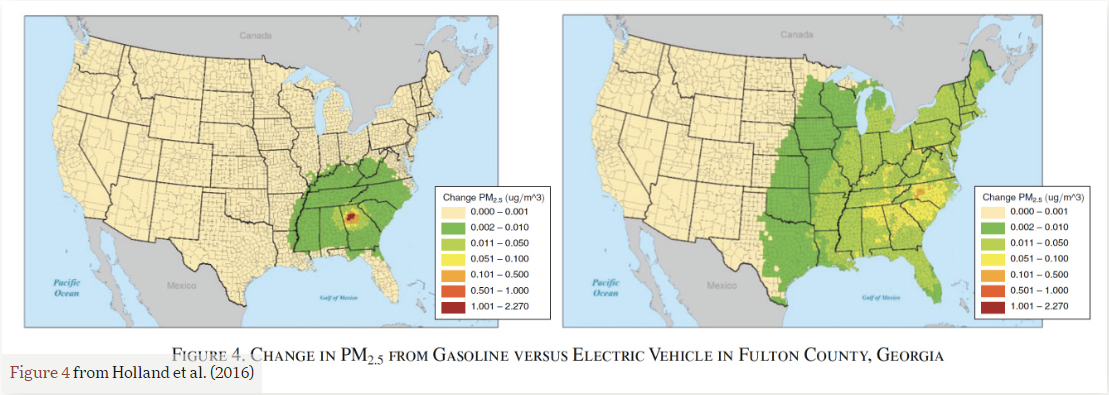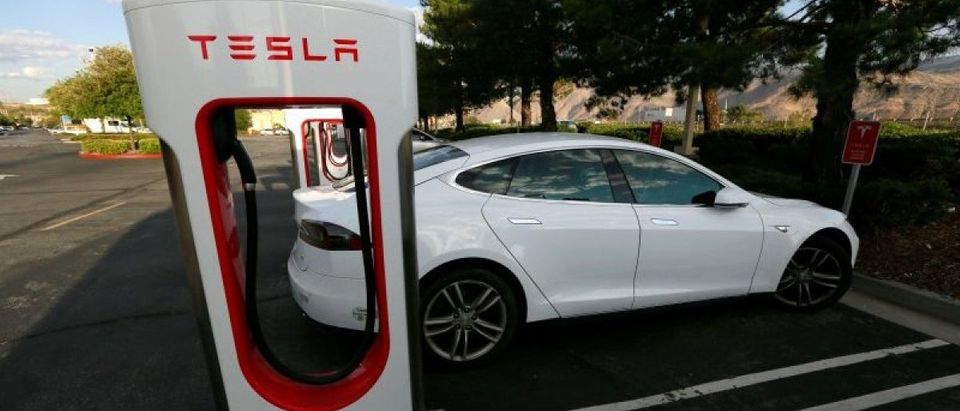Electric car proponents often tout how Teslas and other “zero emissions” vehicles are good for the environment because they drastically reduce tailpipe pollution mucking up major cities.
While that’s true, a recent study found the widespread adoption of electric cars simply exports pollution from one area to others.
A recent study published in this month’s American Economic Review found “the electricity used to power [electric cars] has to be generated somewhere, and in certain parts of the United States the resulting power plants emissions might be worse than what’s coming out of the tailpipe,” according to a release.
So while local environments may become cleaner, pollution in other states increase as a result of higher electricity demand to charge cars in, say, Atlanta. The city and surrounding counties become slightly cleaner, but tailpipe emissions are just spread out throughout more states with power plants (mostly using coal and natural gas) that will generate power for Atlanta.
This map demonstrates the issue:

Screenshot of chart from Holland et al. (2016) published in the December 2016 edition of American Economic Review.
“But thanks to the interconnected power grid in the eastern U.S., areas as far away as Minneapolis or northern Maine suffer slightly worse air quality when electric cars in Atlanta power up,” reads the study’s release.
“This ‘pollution export’ phenomenon complicates the question of whether electric cars should be subsidized,” reads the release.
This is by no means the first study to call into question the environmental benefits of electric cars, but it does question the value of subsidizing electric cars — especially when they tend to transfer pollution from wealthier, urban coastal areas to less affluent, rural regions.
“Ninety percent of local environmental externalities from driving electric vehicles in one state are exported to others, implying they may be subsidized locally, even when the environmental benefits are negative overall,” economists wrote in their American Economic Review study.
“Geographically differentiated subsidies can reduce deadweight loss, but only modestly,” they concluded.
Follow Michael on Facebook and Twitter
All content created by the Daily Caller News Foundation, an independent and nonpartisan newswire service, is available without charge to any legitimate news publisher that can provide a large audience. All republished articles must include our logo, our reporter’s byline and their DCNF affiliation. For any questions about our guidelines or partnering with us, please contact licensing@dailycallernewsfoundation.org.


